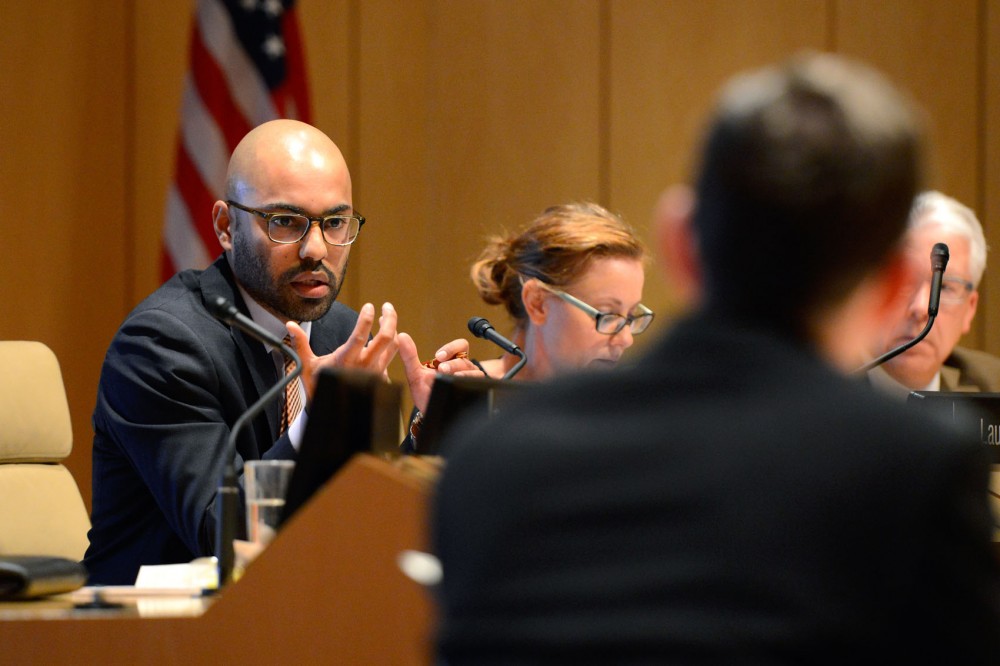Incoming University of Minnesota students who are not state residents and do not qualify for reciprocity rates may see their tuition grow by as much as $12,000 over four years.
At a meeting last Thursday, the University Board of Regents approved a plan to incrementally raise tuition to bring the University’s nonresident tuition rate closer to the Big Ten average.
“There’s more uncertainty at how the raise will look now … the enrollment plan keeps it generic,” Vice Provost Robert McMaster said.
The hike will likely amount to a 7 to 12 percent increase, McMaster said, down from President Eric Kaler’s suggested 15 percent bump that drew backlash from students in December.
Though tuition will rise, McMaster said nonresident students could offset it through scholarships, grants and financial aid.
“With the discounts, the maximum increase [students] pay will be 5.5 percent,” McMaster said.
The tuition hike is part of a five-year enrollment plan that includes an administrative effort to bring out-of-state tuition in line with other Big Ten schools.
Currently, the University charges the lowest nonresident tuition in the conference.
Though many Regents supported the resolution, they also raised concerns about the plan’s language and direction.
“The middle of the Big Ten is a cop out. … We need to go slow,” Regent Peggy Lucas said at Thursday’s meeting. “I can’t support [the plan] if we are trying to go the middle of the Big Ten.”
At Thursday’s meeting, Regent Darrin Rosha proposed adding a measure that would favor higher enrollment numbers for Minnesotans. But that amendment did not pass with the rest of the tuition hike plan.
Regent Thomas Anderson said the yearly increases gave the resolution flexibility.
“[But] I don’t think the mean or median is what we should aim for,” Anderson said at the meeting.
Even regents who advocated for the bill expressed concern that the tuition increases may be too hefty.
“I think we need to increase the tuition … but aiming for the midpoint [of the Big Ten] is highly bothersome to me,” said Regent Linda Cohen, who supported the bill.
Some student representatives opposing the bill submitted a statement to the Regents discussing how the increase would affect them.
Callie Livengood, Minnesota Student Association’s representative to the Regents, said a rapid tuition increase may affect the matriculation of prospective students. Higher tuition prices could discourage them from enrolling at the University, she said.
Livengood also said that the ideas and details of the tuition hike were not sufficiently communicated to students.
Similar sentiments were expressed by Cory Schroeder, student representative from University of Minnesota-Morris.
“Many students are concerned that this significant increase will affect the University’s ability to attract diverse groups of students,” Schroeder said at the meeting.
Vice Provost Robert McMaster said the administration’s next step is to address the tuition hike to both future and current students. He said current nonresident students have already received a notification about the measure.
“Future students deserve to know the full extent of planned increases in tuition,” according to the student statement in the Board of Regent’s report.


